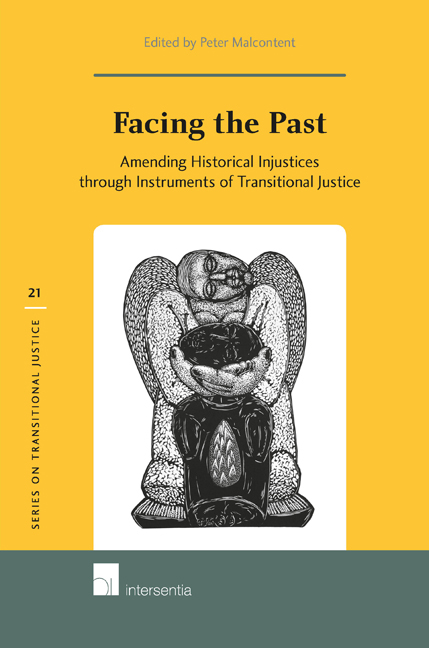Introduction
from PART I - TRANSITIONAL JUSTICE. WHAT'S IN THE NAME?
Published online by Cambridge University Press: 15 December 2017
Summary
AMENDING THE PAST. A NOVEL URGE?
On 15 July 1999 hundreds of Christians concluded their three year reconciliation walk at the walls of Jerusalem's Old City where they apologised to Muslims, Jews and Orthodox Christians for the Crusaders’ bloody pillage of the city nine hundred years earlier. Although this act of atonement was rather extreme, it did not stand alone but was part of a growing urge, particularly in the West, to amend past injustices and atrocities.
Already in 1988 United States President Ronald Reagan signed into law a bill that expressed the nation's apology for the internment of Japanese Americans during World War II. The act furthermore provided for financial compensation in the amount of 1.25 billion US dollars, a sum that was both acceptable to the government and satisfactory to the victims. In May 1997, President Clinton offered a formal apology to survivors of a forty-year study by the US Public Health Service that had sought to document the course of syphilis by withholding proven medical treatment from a group of African Americans suffering from this disease. Two weeks later his British colleague Tony Blair issued an apology for his country's role in the Irish Potato Famine in the nineteenth century, which caused the death of one million people. In a letter to the organisers of a weekend festival to commemorate the famine, Blair spoke of a ‘defining event in the history of Ireland and Britain that had left deep scars (…) and that still causes pain as we reflect on it today’.
In France, President Jacques Chirac had already publicly recognised his country's responsibility for the deportation of thousands of Jews to Nazi death camps during the reign of the collaborationist Vichy regime in World War II. Later in 1998 he even apologised for the false arrest and conviction of the Jewish army captain Alfred Dreyfuss one century earlier. In an open letter to the families of Dreyfuss and Emile Zola, the famous author who himself was brought to trial after publicly accusing the government of conspiracy, President Chirac expressed deep remorse for the unlawful persecution of both men.
- Type
- Chapter
- Information
- Facing the PastAmending Historical Injustices Through Instruments of Transitional Justice, pp. 3 - 26Publisher: IntersentiaPrint publication year: 2016



